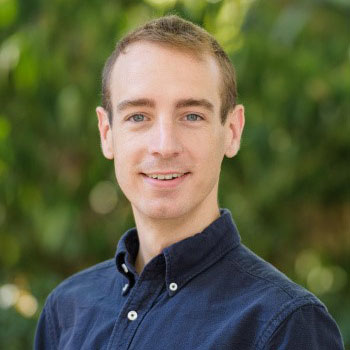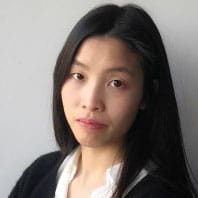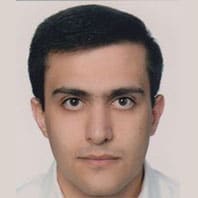Education and training
Young Scientists Summer Program
For three months every summer, the flagship Young Scientists Summer Program (YSSP) provides an opportunity for around 50 to 55 PhD students to work alongside IIASA researchers. During their stay, each participant is required to prepare a research paper. Many of these papers are published in prestigious journals. Since 1977, over 1,970 young scientists from 87 countries have benefitted from the program. The 2018 program hosted 52 participants from 27 countries.
2018 program
2018 YSSP Awards
IIASA has instituted two annual awards for exceptional young scientists participating in the YSSP. The Peccei Award is awarded in recognition of rigorous research that makes a policy contribution, while the Mikhalevich Award is given to students who use mathematical tools to solve real-world questions. The recipients of these awards return to IIASA for another three months.
 Matt Cooper received the Peccei Award for his study “Which children are most vulnerable to climate change? Mapping the effects of meteorological extremes on child stunting”. Cooper is a PhD student at the University of Maryland, USA.
Matt Cooper received the Peccei Award for his study “Which children are most vulnerable to climate change? Mapping the effects of meteorological extremes on child stunting”. Cooper is a PhD student at the University of Maryland, USA.
 Jiamin Ou received the Mikhalevich Award for her paper “China’s export industries and their contributions to ground-level Ozone pollution”. Ou, originally from China, is a PhD student at the University of East Anglia, UK.
Jiamin Ou received the Mikhalevich Award for her paper “China’s export industries and their contributions to ground-level Ozone pollution”. Ou, originally from China, is a PhD student at the University of East Anglia, UK.
 An Honorable Mention goes to Davit Stepanyan for his study “Application of Gaussian Quadratures in the Global Biosphere Management Model (GLOBIOM) as an efficient approach to uncertainty analysis”. Originally from Armenia, Stepanyan is a PhD student and research associate at Humboldt University in Berlin, Germany.
An Honorable Mention goes to Davit Stepanyan for his study “Application of Gaussian Quadratures in the Global Biosphere Management Model (GLOBIOM) as an efficient approach to uncertainty analysis”. Originally from Armenia, Stepanyan is a PhD student and research associate at Humboldt University in Berlin, Germany.
IIASA Postdoc Program
Postdoc opportunities at IIASA allow early‑career scientists to research a topic related to the scientific agenda at IIASA and hone their skills in systems analysis. IIASA postdocs are funded with support from the institute and one honorary fellowship established in honor of Dr. Peter de Jánosi, IIASA Director from 1990 to 1996.
In addition to the above, IIASA has been establishing bilateral postdoctoral fellowship programs funded by National Member Organizations (NMOs) since 2008.
These programs are an effective way for NMOs to increase the number of its nationals who are postdocs at IIASA, and to develop expertise in systems analysis among its researchers. IIASA currently has bilateral programs with Brazil, China, Finland, Mexico, and the Republic of Korea, and discussions are underway with the United Kingdom about establishing a scheme.
In 2018, there were a total of 26 postdocs at IIASA. This included 13 funded by IIASA, 7 funded by NMO bilateral postdoctoral fellowship programs, two funded by the Peter de Jánosi fellowship program, and 1 funded by the Luis Donaldo Collosio fellowship program.
Along with the Brazil bilateral postdoc program, IIASA established a doctorate-sandwich program funded by the Brazilian NMO. During 2018, IIASA hosted three PhD candidates from Brazil who spent time developing their doctoral research program.
Choose a country to view YSSP and postdoc participants
Southern African Systems Analysis Centre
In 2016, the South African National Research Foundation and the country’s Department of Science and Technology, in collaboration with IIASA, launched the Southern African Systems Analysis Centre (SASAC), with the aim of expanding systems analysis capacity in the region. The center is currently hosted by a consortium of four South African universities, namely the Universities of Limpopo, Stellenbosch, the Western Cape, and the Witwatersrand.
SASAC provides a dedicated bursary program with annual calls for South African PhD students based at South African universities to pursue their studies with a supervisor experienced in systems analysis. The center also offers an annual capacity-enhancement program for South African and international postdoctoral researchers.
In 2018, 24 students received scholarships, and 20 postdoctoral researchers attended the 2018 three week capacity-enhancement program.
Building systems analysis expertise
In 2018, IIASA scientists hosted or coordinated 89 events worldwide, including a number of workshops and activities designed to build capacity in systems analysis. Below is a small selection of these activities.
- East Africa future water scenarios workshop, Uganda
- Demographic analysis with applications to aging societies, Thailand
- Water nexus policy strategic planning workshop, IIASA
- Training workshop on the GAINS model for experts from Eastern Europe, Caucasus, and Central Asia, IIASA
- Summer school on evidence and policy, IIASA
- Water modelling approaches for Egyptian academics, Egypt
- Workshop on haze and biomass burning in Asia, Indonesia
- All 2018 events